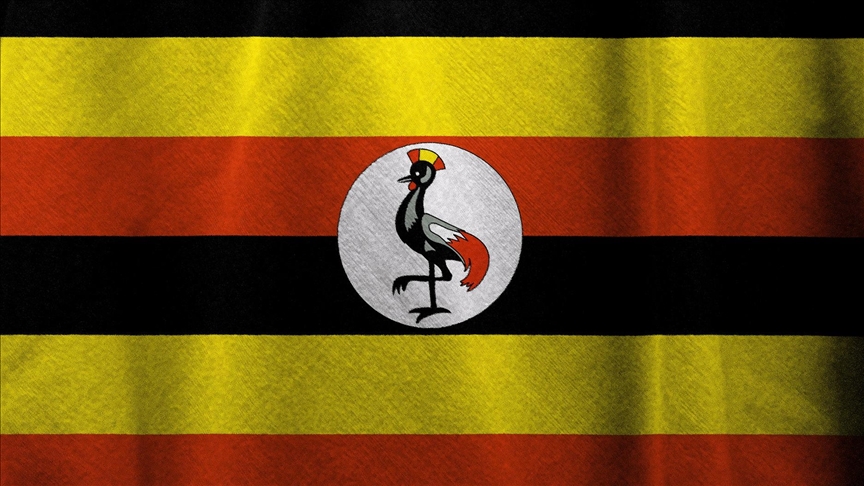Turkey continues discussions with Uganda on FETO assets
As long as FETO-linked institutions operate in any country, such country at risk of rebellion, says analyst

KAMPALA, Uganda
Shortly after the first-ever presidential visit from Turkey to Uganda in 2016 and while Turkish President Recep Tayyip Erdogan was preparing to host his Ugandan counterpart in Ankara, the Republic of Turkey experienced one of the most shocking events in its recent history.
That fateful night of July 15, the world watched in horror on social media an attempted military coup from the beginning to the end.
The coup attempt was orchestrated and executed by the Fetullah Terrorist Organization (FETO) and its US-based leader Fetullah Gulen, which had been engaged in a struggle with the Turkish government since 2013. Its followers within the armed forces used lethal force against civilians: tanks rolled down city streets, fighter jets bombed the parliament, the presidential complex, the buildings of National Intelligence Organization and Turkish Directorate General of Security, and attempted to assassinate the president.
Erdogan addressed his countrymen via Facetime on live television broadcast and called on all citizens to take to the streets. Civilians were gunned down by soldiers on the Bosphorus bridge during the coup bid, in which 251 people were killed and 2,734 wounded.
Turkey and Uganda established diplomatic ties more than 50 years ago and enjoy good bilateral relations. FETO capitalized on this opportunity and the sympathy of the Turkish people to mobilize resources and establish a base in Uganda, where it runs schools and hospitals among other things.
Although some FETO-linked infrastructure in Uganda has been incapacitated, sources have indicated that one of Uganda's big private hospitals in Kampala that has been operating since 2019 is run by one of the FETO fugitives who fled Turkey after the defeated coup and whose assets were frozen in Turkey. Another lesser FETO-affiliated private hospital is said to be operating in Jinja, eastern Uganda.
There are concerns that the Ugandan government is not moving fast enough to raise a red flag on all FETO activities in the country.
Kassim Idd Balonde, the director of Social Humanitarian Aid Delivery Uganda, told Anadolu Agency that given the health and education challenges across Uganda, it is less likely that the government will move swiftly to close its doors on infrastructures that are trying to close the gap.
“Nearly half of enrollment in schools is in the private sector. What will you do with such a number if you close the schools? It is such demands that provide fertile ground for strategic investments like FETO did in areas of education and health,” he said.
Uganda’s Deputy Prime Minister Rukia Nakadama Isanga recently said that the government does not support FETO and any other terrorist organizations that destabilize Turkey.
Adam Ssebyala, a political analyst, told Anadolu Agency that as long as FETO-linked institutions operate in Uganda or any other country and indoctrinate children into a rebel ideology, such a country will be at risk of rebellion.
Turkish Ambassador to Uganda Fikret Kerem Alp acknowledged that some FETO elements exist in Uganda, offering sham services in education and health but disagrees that the Ugandan government is moving slow to act upon them, saying it is a lengthy process that takes time.
“The Turkish government is continuing private discussions with Ugandan authorities on FETO assets and providing alternatives to the Ugandan government on the existing infrastructure so that there is no vacuum left after FETO stops operating in Uganda,” he said.
Kerem said that board members of the Turkish Maarif Foundation visited Uganda and held talks with the government on the transfer of FETO assets.
The Maarif Foundation is a Turkish government agency established to replace FETO-linked schools abroad in the wake of the 2016 defeated coup attempt. It has since opened representative offices in 52 countries and operates in 67 countries as a result of official contacts with 104 countries around the world in consultation with the relevant ministries and other state institutions. It has also deciphered FETO's education network and locked out the organization’s control of schools one by one through transfers, closures, nationalizations or sales to third countries.
Prior to July 15, 2016, FETO had 63 educational institutions in Africa, 222 in Asia, 150 in Europe, 315 in South and North America, and 10 in Oceania. It has since taken over 216 schools in 19 countries, including Afghanistan, Chad, the Republic of Equatorial Guinea, Ethiopia, Ivory Coast, Gabon, Guinea, Cameroon, the Democratic Republic of the Congo, the People's Republic of the Congo, Mali, Mauritania, Niger, Pakistan, Somalia, Sudan, Tunisia, Venezuela, and Iraq which provide finances and human resources to the organization.
Besides receiving FETO-related educational institutions, it has opened 126 new schools in order to create alternative schools in some areas to address the educational needs of citizens.
The Maarif Foundation has opened 129 new schools in 26 countries, including the US, Afghanistan, Albania, Australia, Bosnia and Herzegovina, Burundi, Djibouti, Gambia, Ghana, South Africa, Georgia, Iraq, Kyrgyzstan, the Democratic Republic of Congo, Kosovo, Hungary, Madagascar, North Macedonia, Mauritania, Pakistan, Romania, Senegal, Sierra Leone, Somalia, Tanzania, and Tunisia.
It has also signed 79 different protocols in 45 countries for the transfer of FETO schools and the opening of new schools, while some countries have voluntarily closed them instead of handing them over.




